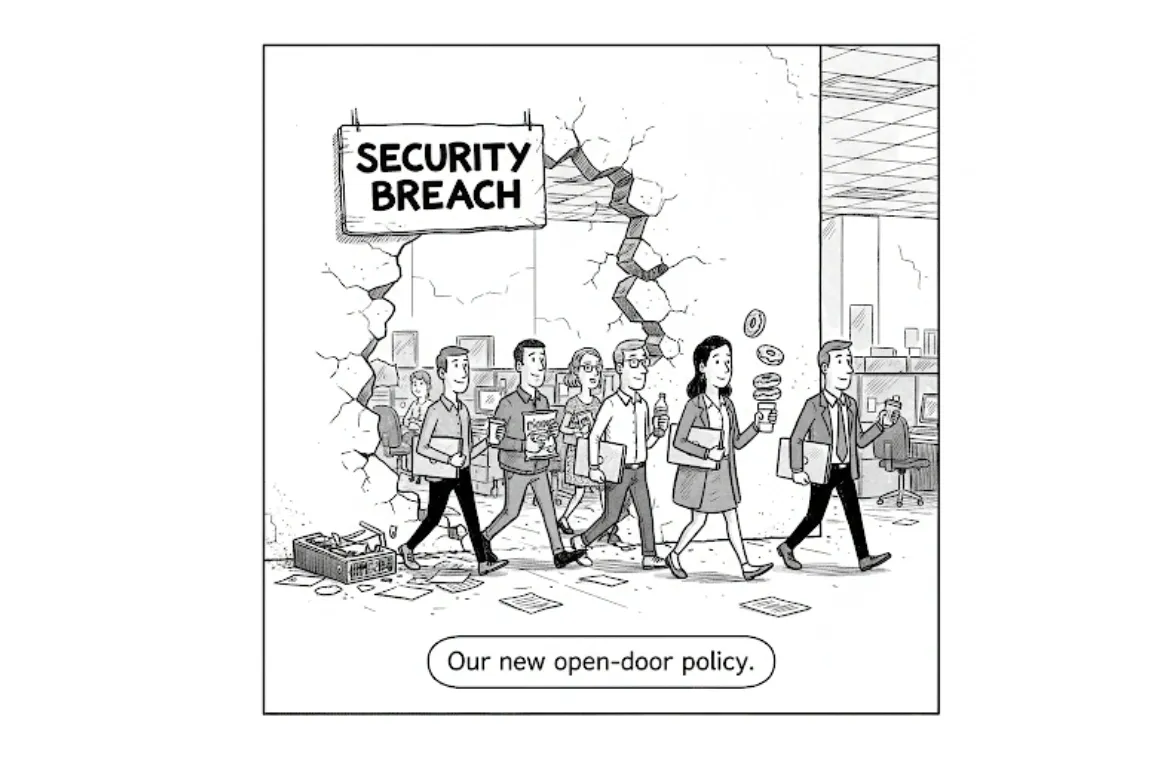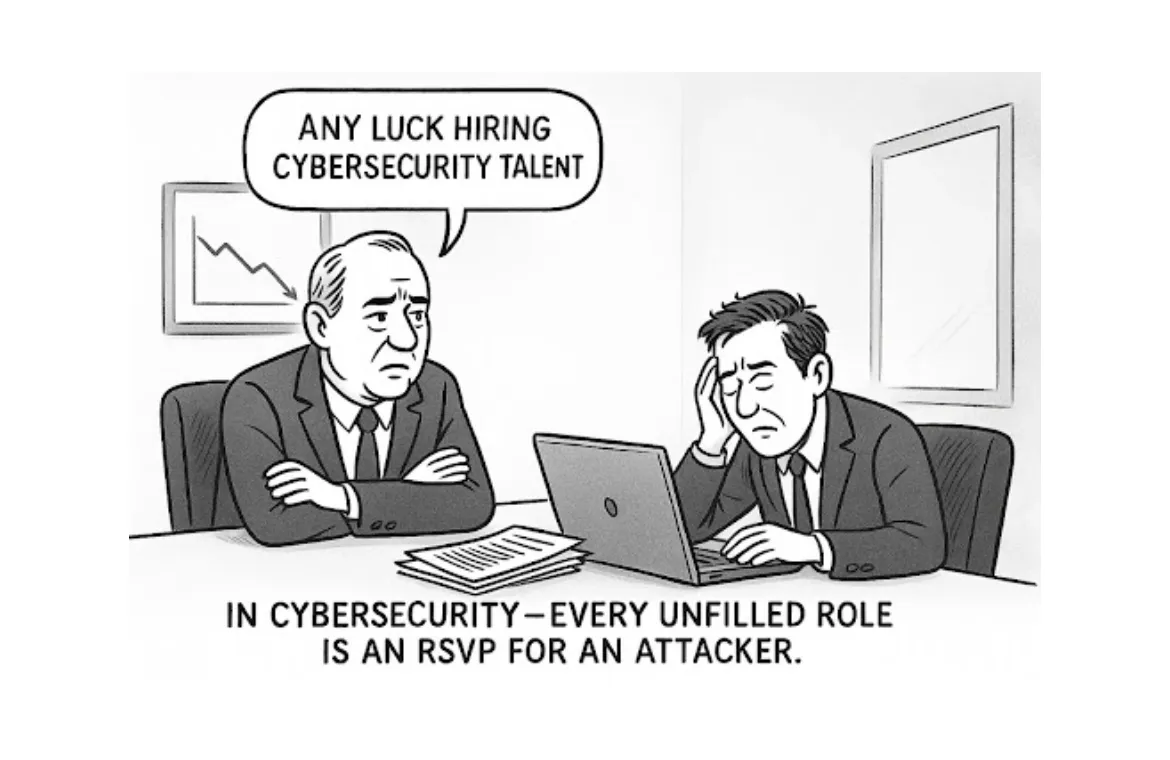The Rising Stakes of Cyber Security: Closing the Talent Gap to Secure the Future

On a quiet afternoon in July 2024, the world’s digital heartbeat skipped. A global IT outage affected millions of devices and services worldwide, triggered by a problematic update from a major cybersecurity provider. The disruption raised serious concerns about the resilience of global digital infrastructure, with economic losses estimated in billions.
As per a WEF survey, over the past year, 72% of respondents have observed a significant increase in cyber risks. Organizations suffer financial losses due to inadequate cybersecurity literacy and a lack of proper and up-to-date guardrails. The estimated yearly cost of cybercrime in 2025 is $10.5 trillion. Security breaches and mounting economic losses highlight the importance of cybersecurity defenders, especially due to the fast-evolving nature of the cyber threat landscape.

The nature of cyber threats has shifted dramatically. No longer are hackers relying solely on phishing emails or rudimentary malware. Emerging technologies bring powerful capabilities and new vulnerabilities. Today’s adversaries weaponize artificial intelligence, automating attacks and probing defenses with unprecedented speed and precision.
An industry study found that 66% of organizations believe AI will have the biggest impact on cybersecurity in the next year, yet only 37% have processes in place to vet the security of their AI tools before deployment. Meanwhile, critical sectors (energy grids, finance systems, healthcare networks) sit in the crosshairs as high-value targets, escalating the stakes for defenders. This makes the urgent need for skilled cybersecurity professionals more critical than ever.
What’s needed is a paradigm shift: industry-aligned, research-driven programs that don’t just teach theory, but equip professionals to think, act, and respond in real time. Bridging this gap is an imperative. Real-world threats demand actionable skills: configuring defenses under pressure, conducting live threat analysis, and auditing systems in the heat of the moment. Despite this, organizations continue to face a persistent talent shortage, with many ill-equipped to tackle rapidly evolving threats.
The Cybersecurity Talent Crisis

Globally, the demand for cybersecurity professionals vastly outpaces the supply. Two-thirds of organizations report moderate-to-critical skills gaps, while a mere 14% express confidence in their ability to defend against emerging threats.
The challenge is compounded by the sprawling complexity of today’s digital ecosystems—interlinked cloud platforms, IoT devices, legacy infrastructure, and AI-driven applications. A single weak link can trigger catastrophic chain reactions, exposing networks to devastating attacks.
But the problem runs deeper. Cyber threats evolve relentlessly, outpacing static knowledge and fragmented learning approaches. Without adaptive, hands-on, and continuous upskilling, organizations remain dangerously exposed, perpetually one step behind sophisticated attackers.
Also read: The Cybersecurity Skills That Employers Actually Want in 2025
Towards a Resilient Digital Future
The challenge extends beyond individual skills. It’s about building an ecosystem where industry, academia, and government collaborate to deliver structured, up-to-date programs that reflect real-world complexity.
Developed by the C3I Hub (Center for Cybersecurity and Cyber Defense of Critical Infrastructure), IIT Kanpur’s Cybersecurity & Cyber Defense Program stands out. With its AI-enhanced curriculum, the program has evolved over five years to reflect the growing sophistication of cyber threats. Its focus on applied learning, not just theory, equips professionals with the skills they need to defend today’s critical digital frontiers.
Explore how IIT Kanpur’s Cybersecurity & Cyber Defense program equips professionals to meet today’s most urgent challenges.

TalentSprint
TalentSprint is a leading deep-tech education company. It partners with esteemed academic institutions and global corporations to offer advanced learning programs in deep-tech, management, and emerging technologies. Known for its high-impact programs co-created with think tanks and experts, TalentSprint blends academic expertise with practical industry experience.



